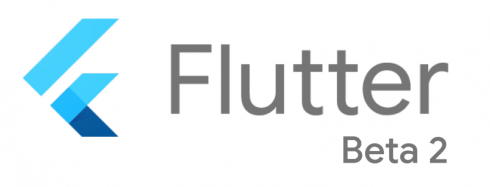
Google has announced the second beta release of its mobile UI framework Flutter. Updates in Flutter beta 2 include an easier installation (new Flutter Console for Windows users), improved developer tools, an improved asset system which launches apps faster, and making new and const keywords optional.
“We’ve been working hard to continue to support Flutter’s rapidly expanding community and are now introducing easier installation, default support for Dart 2, and more. If you are a new to Flutter, get started today with beta 2 at flutter.io. If you are an existing Flutter user please review the ‘Call to action’ below to ensure your code is compatible with Dart 2,” Michael Thomsen, product manager of Dart and Flutter, wrote in a blog post.
Rails version 5.2 released with active storage and HTTP/2 early hints
The Ruby on Rails team has announced an upgrade to the framework with Rails 5.2.0. Ruby on Rails is a web-application development framework. One of the additions in the new release is active storage, a modern approach of uploading files to the cloud. It provides support for Amazon’s S3, Google’s Cloud Storage, and Microsoft Azure Cloud File Storage.
This release comes right before RailsConf that will feature sessions about new encrypted credentials, review of Active Storage, advice on how to upgrade new Rails version, and discussion of Webpack.
The release also features Webpacker 3.0 for managing app-like JavaScript modules in Rails. “Since Rails 5.1, we’ve also made great strides with Webpacker. So Rails 5.2 is meant to pair beautifully with the new Webpacker 3.0 release. Rails has fully embraced modern JavaScript with a pre-configured build pipeline run by Webpack. We keep strengthening that relationship,” the company wrote in a blog post.
Qordoba announces emotion scoring to its agile platform
Qordoba has announced a new capability for scoring emotional tone in product and marketing content. Qordoba is a platform for product development teams to manage the words in their applications.
The new content scoring capability is based on affect detection, a computer science disciple that utilizes natural language processing techniques to identify emotion associated with a specific combination of words. According to the company, this will allow developers and product teams to create effective user interfaces.
“Interfaces matter. People can already customize and personalize content in CRM and email. Qordoba enables customization in software interfaces, apps and products,” said May Habib, Qordoba co-founder. “Our plan is to have a permanent spot in the tech stack used to manage all the text everywhere. GitHub is used to manage code — Jenkins is used to manage build and deployment — Qordoba is used to manage all of the words in the user experience.”
OpenAI provides insight into company’s mission
OpenAI has released a charter that will describe the principles intended to execute the company’s mission to ensure artificial general intelligence (AGI) benefits all of humanity. The principles include technical leadership, cooperative orientation, long-term safety, and broadly distributed benefits.
“This document reflects the strategy we’ve refined over the past two years, including feedback from many people internal and external to OpenAI,” the company wrote in a blog post. “The timeline to AGI remains uncertain, but our charter will guide us in acting in the best interests of humanity throughout its development.”






